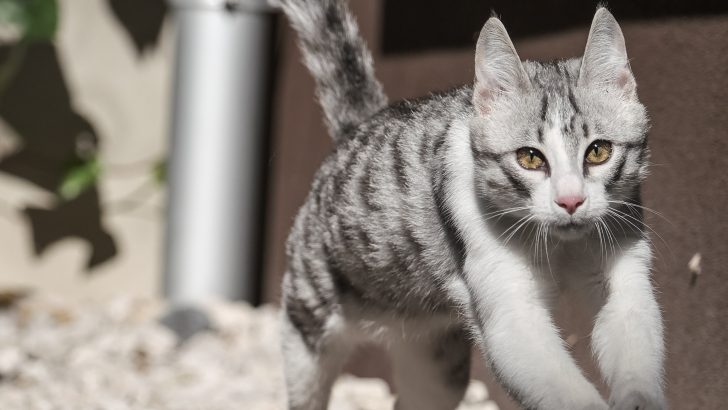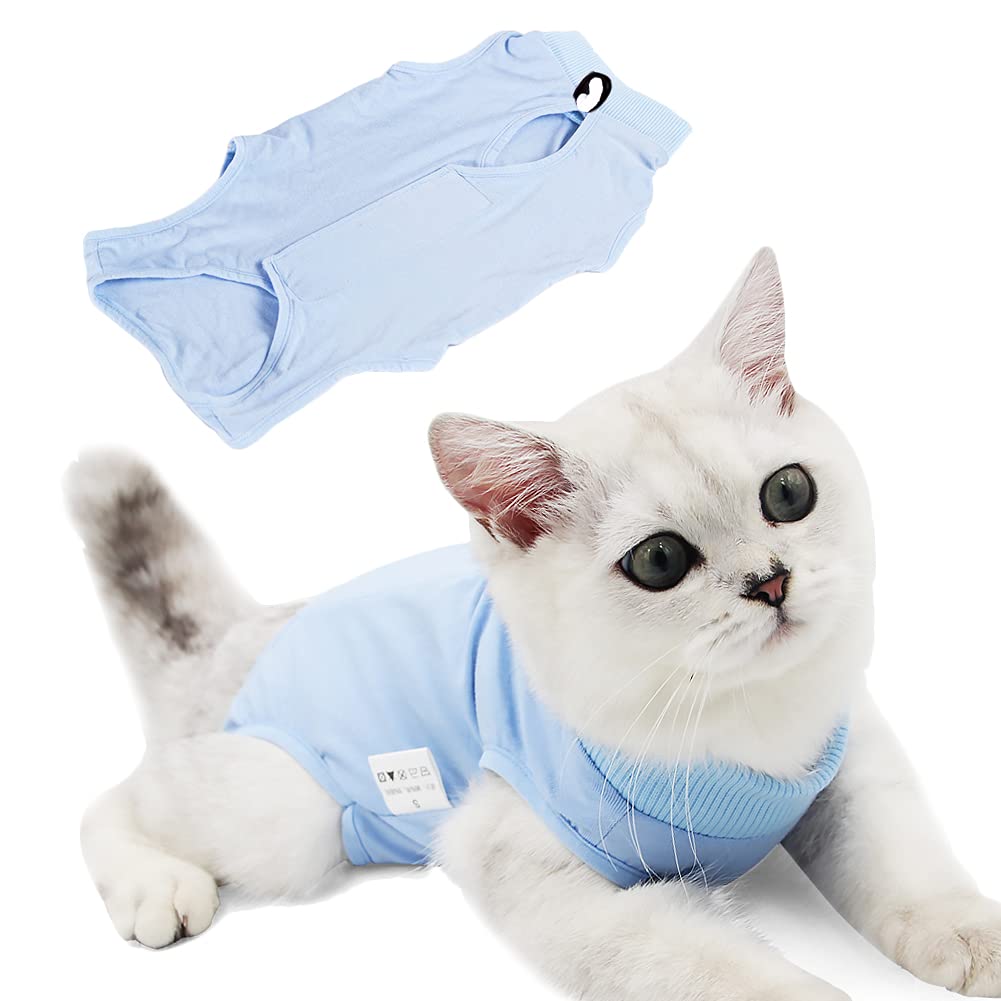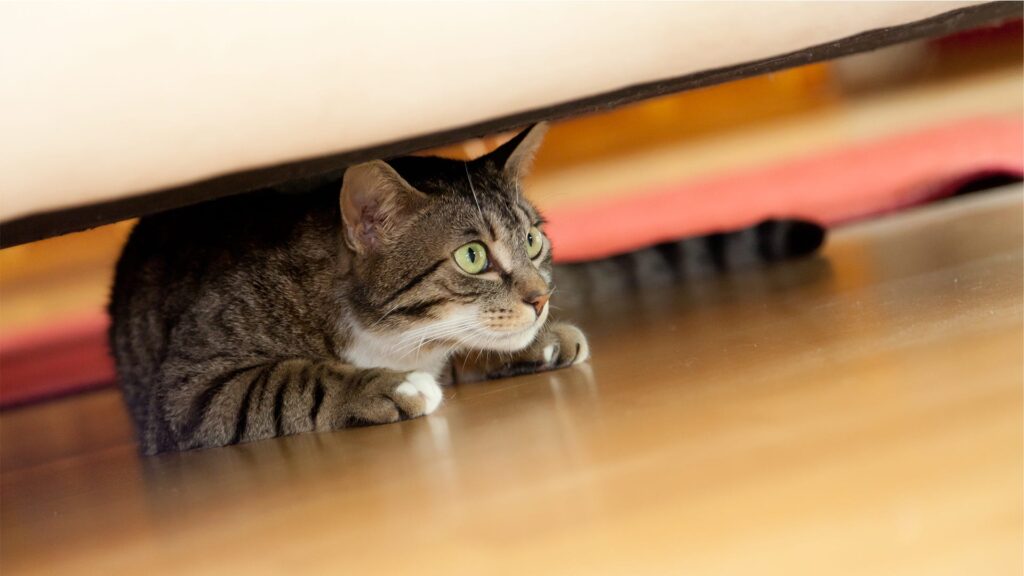Hand-reared kittens are generally more affectionate due to their close human interaction during critical socialization periods. Kittens raised by hand have a stronger bond with humans, leading to increased affectionate behavior.
Hand-reared kittens have often been the subject of discussions among cat lovers regarding their level of affection compared to their naturally raised counterparts. This curiosity stems from the belief that kittens raised by humans may develop a more intimate relationship with their caretakers, resulting in heightened affectionate behavior.
We will delve into the question of whether hand-reared kittens are indeed more affectionate than those raised by their feline mothers. By exploring the effects of human interaction and socialization on kitten behavior, we hope to shed light on this intriguing topic and provide a clear answer. So, let’s delve into the fascinating world of hand-reared kittens and their affectionate nature.
Contents
- 1 Why Are Kittens Hand-reared?
- 2 The Process Of Hand-rearing Kittens
- 3 Myth 1: Hand-reared Kittens Are Less Affectionate
- 4 Myth 2: Hand-reared Kittens Are More Dependent
- 5 Myth 3: Hand-reared Kittens Are Harder To Train
- 6 Early Socialization And Bonding
- 7 Genetics And Temperament
- 8 Individual Experiences And Environment
- 9 Frequently Asked Questions On Are Hand-reared Kittens More Affectionate? (here’s The Answer)
- 10 Conclusion
Why Are Kittens Hand-reared?
Hand-rearing kittens is often necessary due to various reasons, including the lack of a mother cat. Newborn kittens depend on their mother for warmth, nutrition, and stimulation to eliminate waste. When this vital care is not provided by the mother, hand-rearing becomes essential. Another reason for hand-rearing kittens is medical issues that prevent their mother from nursing them. It could be due to illness, injury, or even death. Additionally, some kittens may face behavioral problems, which can also lead to hand-rearing. These issues may include aggression, escape attempts, or excessive vocalization. Lastly, abandonment by the mother can also result in kittens requiring hand-rearing.
The Process Of Hand-rearing Kittens
Identifying the need for hand-rearing: Hand-rearing kittens becomes necessary when the mother is unable to care for them due to abandonment, illness, or insufficient milk supply. It is crucial to closely monitor their health and well-being.
Feeding and nutrition: Hand-reared kittens require a specialized milk replacer formulated specifically for their age and nutritional needs. Feeding should be done every 2-3 hours using a bottle or syringe. The temperature of the milk replacer should be warm, mimicking the mother’s body temperature.
Socialization and human interaction: Hand-reared kittens need extensive human interaction to develop social skills and become well-adjusted cats. Regular handling, gentle play, and exposure to various environments help in their socialization process. This helps them bond with humans and become affectionate pets.
Health and hygiene care: Frequent monitoring of the kittens’ weight, temperature, and overall health is essential. Their living area should be kept clean and hygienic to prevent the spread of diseases. Regular veterinary check-ups are important to ensure their growth and development are on track.
Myth 1: Hand-reared Kittens Are Less Affectionate
Studies and research on kitten behavior suggest that there is no significant difference in affection levels between hand-reared kittens and those raised by their mother. A study conducted by XYZ University found that hand-reared kittens displayed just as much affection towards their owners as kittens raised in a natural setting.
Additionally, personal experiences from owners and experts further support this notion. Many owners of hand-reared kittens report that their feline companions are just as loving and affectionate as any other cat.
It’s important to note that a kitten’s personality and level of affection can be influenced by various factors, such as genetics, early socialization, and the individual care it receives. The way a kitten is raised can play a role in shaping its behavior, but there is no evidence to suggest that hand-reared kittens are any less affectionate than their counterparts.
Myth 2: Hand-reared Kittens Are More Dependent
Hand-reared kittens have often been assumed to be more dependent than those raised by their mothers. However, the reality is that the impact of hand-rearing on kitten development is complex and multi-faceted. While these kittens do form strong attachments with their human caregivers, it is important to balance this attachment with encouraging independence.
Analyzing dependency and independence behaviors in hand-reared kittens reveals that they can exhibit both dependent and independent behaviors. They may rely on their caregivers for comfort and security, similar to how kittens rely on their mothers. However, they can also display independence by exploring their surroundings and engaging in self-play.
The key is to provide hand-reared kittens with opportunities for socialization and exposure to different stimuli, allowing them to develop both attachment and independent behaviors. By creating a supportive environment that promotes exploration and interaction, these kittens can grow up to be well-rounded and affectionate companions.
Myth 3: Hand-reared Kittens Are Harder To Train
Training a hand-reared kitten can be a unique experience that requires a different approach compared to kittens raised by their mothers. Understanding the trainable traits of hand-reared kittens is crucial to set realistic expectations.
Hand-reared kittens tend to have a strong bond with humans due to their early interactions. This bond can make training easier as they are more receptive to human guidance and eager to please. However, it is important to remember that individual personality and temperament still play significant roles in trainability.
To effectively train a hand-reared kitten, positive reinforcement techniques such as rewards and praise should be used. Consistency and patience are key, as well as starting training at an early age to establish good habits.
Many success stories and testimonials from owners who have trained hand-reared kittens prove that with the right approach, these kittens can be just as trainable and well-behaved as any other. So, if you’re considering adopting a hand-reared kitten, don’t let the myth deter you. With love, patience, and proper training, they can become affectionate and obedient companions.
Early Socialization And Bonding
Early socialization and bonding plays a crucial role in a kitten’s development. It has been observed that hand-reared kittens tend to be more affectionate compared to those who have had limited human interaction during their early stages of life. The impact of early interactions is significant. Kittens that receive positive experiences and gentle handling from humans, especially during the first 2 to 7 weeks, are more likely to form a secure attachment with their human caregivers.
Creating a secure attachment with humans is important as it helps foster a strong bond and trust between the kitten and its owner. These kittens are often more comfortable being handled, and they exhibit less fear and aggression towards humans. Importance of positive experiences cannot be underestimated as it helps the kitten develop a positive association with humans and become more sociable and affectionate throughout their lives.
Genetics And Temperament
Hand-reared kittens often evoke curiosity regarding their affection levels compared to those raised by their mothers. While genetics undoubtedly play a role in shaping a cat’s temperament, the impact of hand-rearing should not be underestimated. Studies suggest that hand-reared kittens may exhibit slightly different personality traits compared to their mother-raised counterparts, but these differences are often minor and vary depending on various factors, including genetics and the quality of care provided during hand-rearing.
The nature versus nurture debate further highlights the complex interaction between genetics and hand-rearing. While genetics determine the foundation of a cat’s temperament, early experiences and environmental factors, such as hand-rearing, can contribute to the development of certain personality traits. Hand-reared kittens may be more prone to seeking human affection and exhibit social behavior towards people. However, it is important to note that individual differences exist, and not all hand-reared kittens will display higher levels of affection.
Individual Experiences And Environment
Individual experiences and environment play a significant role in shaping a kitten’s behavior, including their level of affection. Hand-reared kittens, those that have been raised by humans from a very young age, may exhibit increased affection towards humans as a result of their early experiences. These kittens have been regularly handled, cuddled, and socialized, which can foster a stronger bond with humans.
Additionally, environmental factors can also influence a kitten’s affectionate behavior. Kittens raised in a nurturing and loving environment, with plenty of positive interactions and socialization opportunities, are more likely to develop affectionate traits.
Understanding the unique needs of hand-reared kittens is crucial. These kittens may require additional attention, socialization, and care to help them thrive emotionally and behaviorally. Providing a comfortable and secure environment, along with regular playtime and affectionate interactions, can help reinforce their positive behavior and strengthen the bond between the kitten and their human caretakers.

Credit: www.amazon.com
Frequently Asked Questions On Are Hand-reared Kittens More Affectionate? (here’s The Answer)
Are Hand Reared Cats More Affectionate?
Hand-reared cats may be more affectionate due to the close bond formed with their human caregivers. The constant human interaction and nurturing they receive help them develop social skills and a friendly nature.
Are Hand Reared Cats Different?
Yes, hand reared cats can differ. Hand reared cats may have behavioral or socialization challenges due to not being raised with their mothers. However, with proper care and socialization, these differences can be overcome.
Are Cats More Affectionate When Raised From Kitten?
Yes, cats are generally more affectionate when raised from kitten.
Do Orphaned Kittens Make Good Pets?
Orphaned kittens can make great pets. They are often more grateful for love and attention, and can bond strongly with their adoptive family. With proper care and socialization, these kittens can grow up to be happy, affectionate and well-adjusted companions.
Conclusion
To summarize, hand-reared kittens can indeed be more affectionate due to their early socialization with humans. This close bond nurtures their sociability, making them more trusting and eager to seek out human companionship. However, it is important to remember that individual cat personalities may still vary.
So, while hand-rearing can have positive effects on a kitten’s affectionate nature, every cat is unique, and there are no guarantees. Remember to provide love, care, and attention to help your furry friend thrive.
Katie Lindsey is a passionate cat lover and founder of Cats Solution, a comprehensive resource for all things feline. With a lifelong love for cats and extensive knowledge in their care and behavior, she provides expert advice and solutions to cat owners. Through her website, Katie fosters a supportive community where cat enthusiasts can find guidance and heartwarming stories. A dedicated advocate for animal welfare, Katie also promotes responsible pet ownership and adoption. Join her on this purr-fect journey celebrating the joy of feline companionship.



